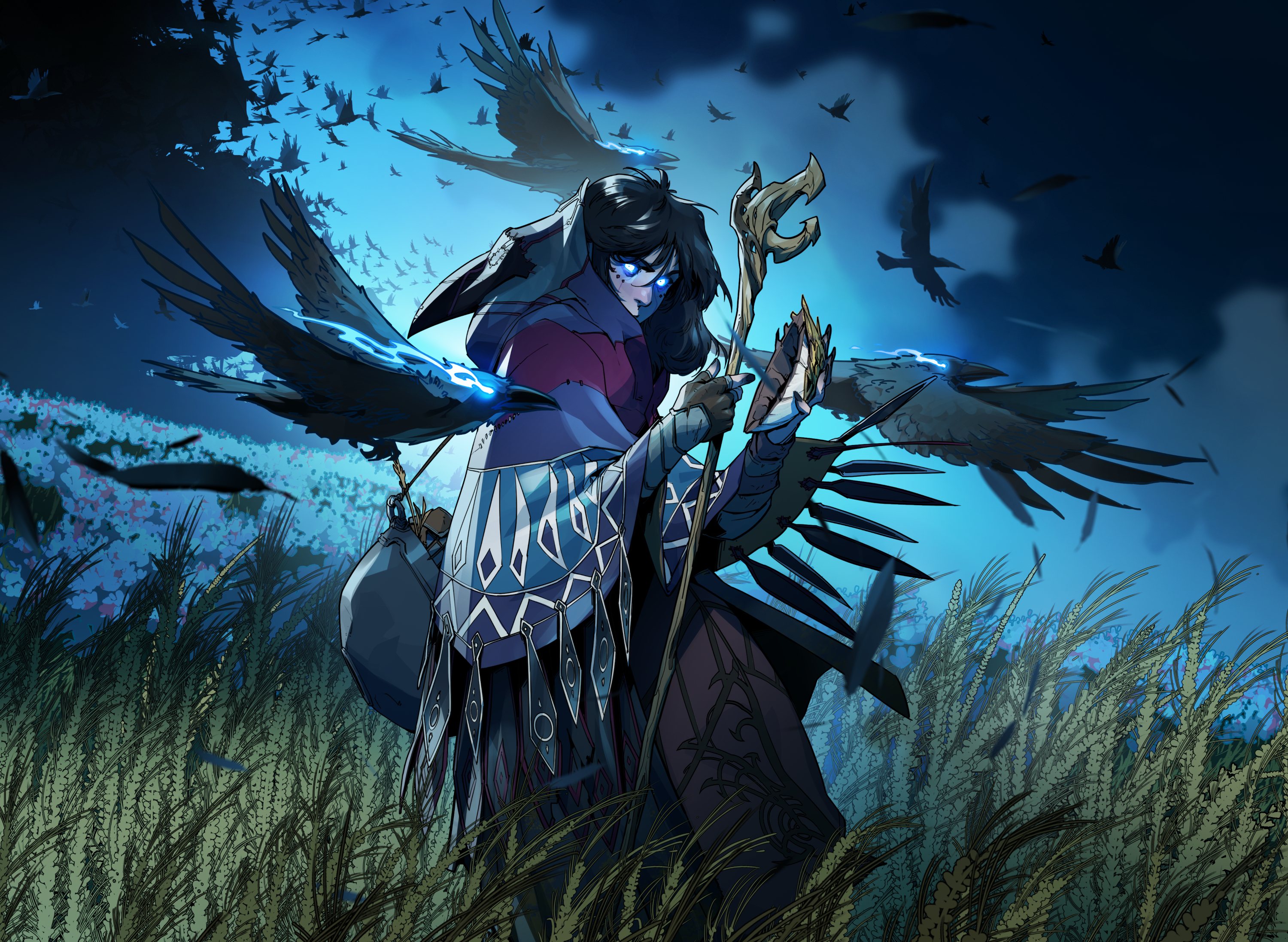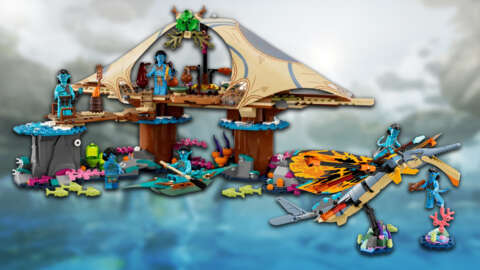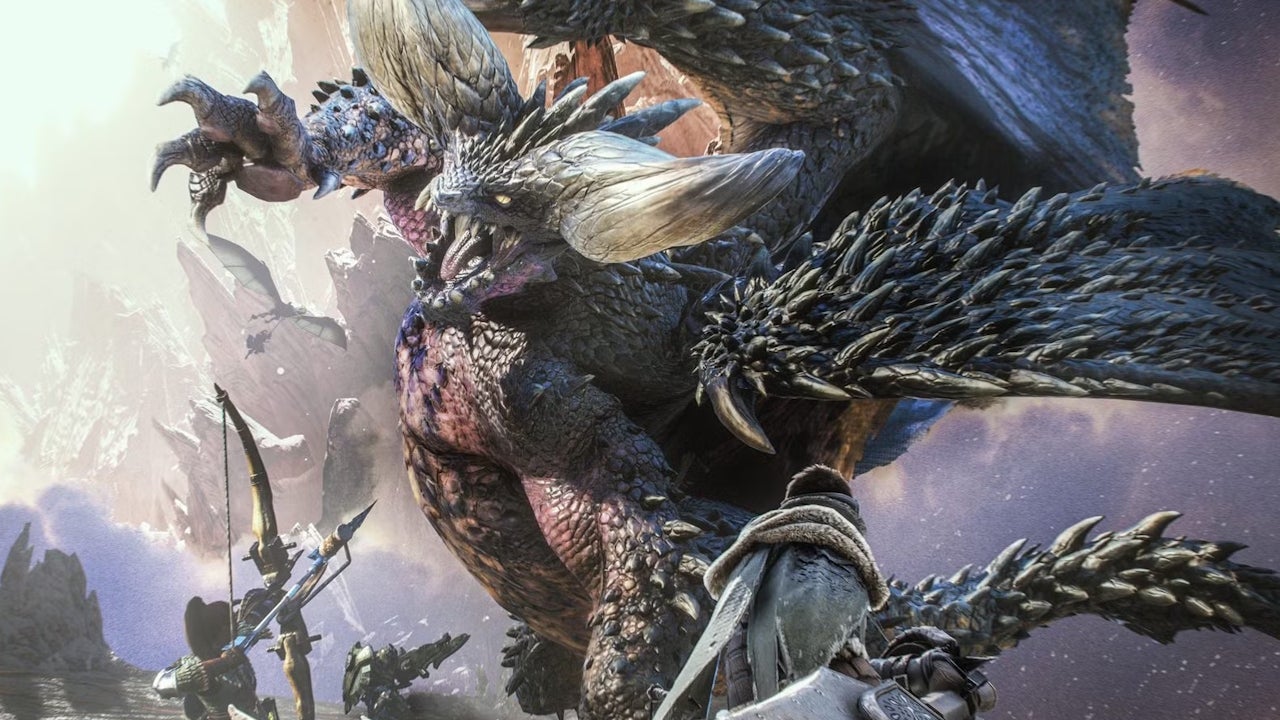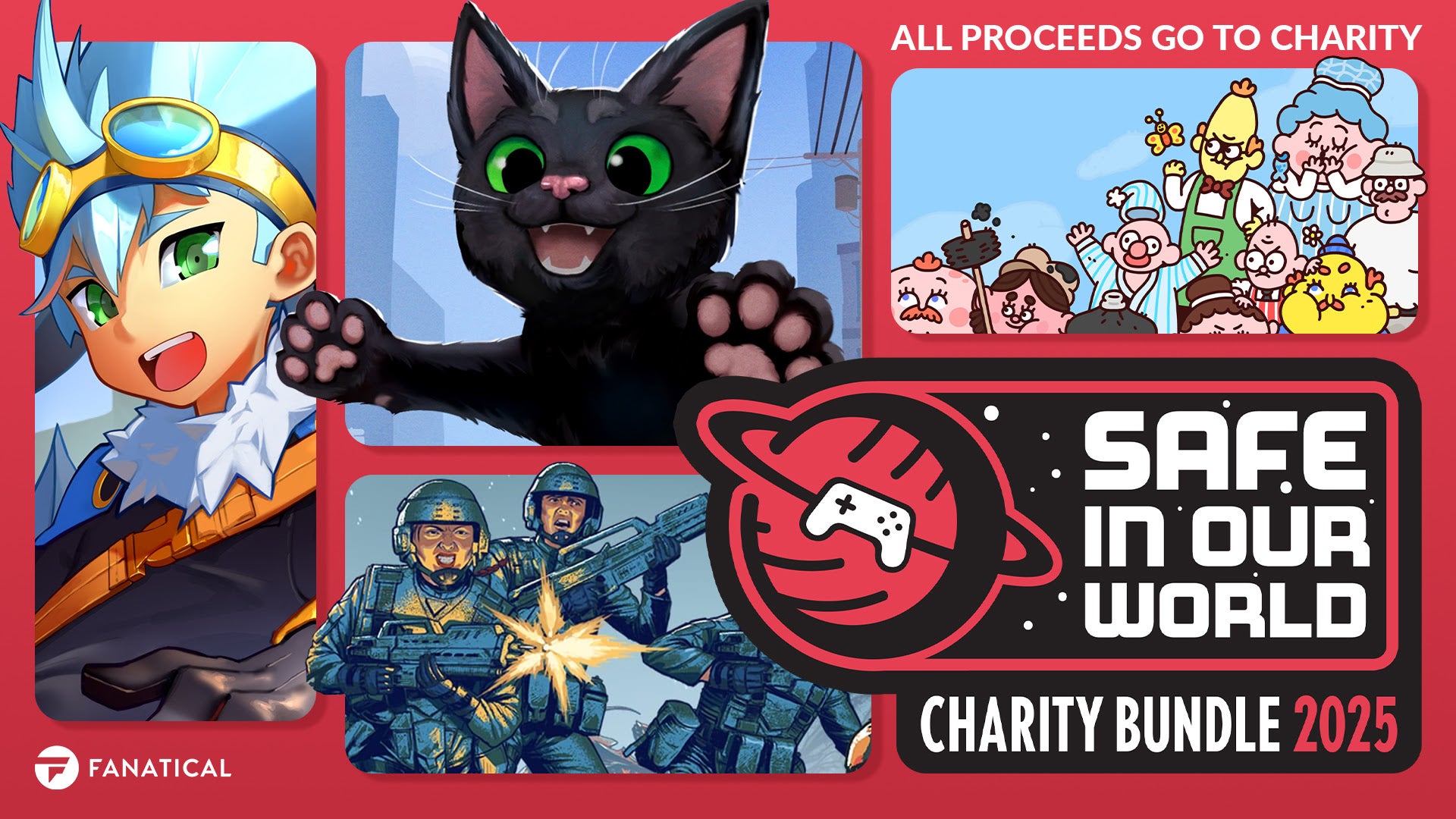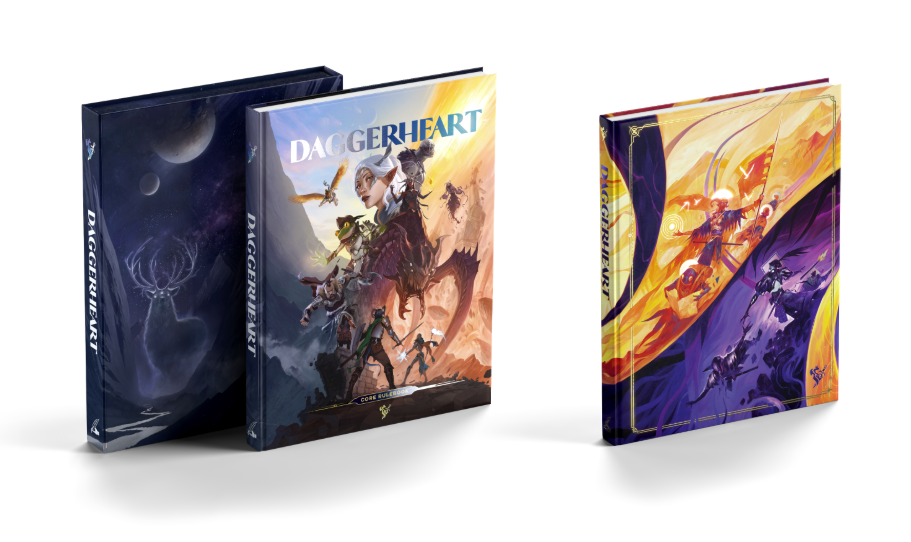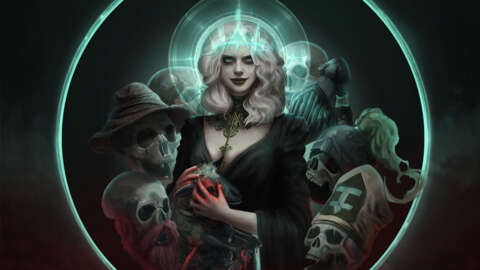
2024, like every year since 2020, was a monumental year for tabletop role-playing games. While Wizards of the Coast put out the highly anticipated update to Dungeons & Dragons 5e — One D&D, D&D 5.5e, D&D 2024, pick your favorite nom de game — the ecosystem of TTRPGs has a budding crop of designers, and 2024 was certainly a year they bore fruit.
You can’t really say that 2024 was an easy year, however. The looming threat of tariffs, suppression of game creators’ reach on social media, and introduction of AI into creative spaces sit in the zeitgeist behind all these games. In the face of massive political and social instability, artists and designers have doubled down on the importance of their work and playing together — and the games on this list highlight that. From the found family of Yazeba’s Bed & Breakfast to the conspiratorial The Slow Knife to the migrant refugees of City of Winter, each of these games tackles bigger issues in its own way, offering catharsis and escape through play.
As has become tradition, Polygon asked some of the brightest minds and biggest personalities in the tabletop industry to share what TTRPGs they loved playing this year. This is what they had to say.
City of Winter
Quintin “Quinns” Smith, reviewer at Quinns Quest and co-founder of Shut Up & Sit Down
City of Winter is — I want you to imagine a gymnast in the deepest lunge imaginable — a game that capably straddles two distant worlds.
A lot of people who play TTRPGs want to tell a story that deeply moves them, but they don’t want to leave their comfort zone of role-playing in a plush fantasy world where pretending to be someone else feels lower-stakes somehow.
City of Winter will break your heart, but it’ll also make you feel safe. In this game everybody (there is no game master) plays members of an immigrant community searching for a safe place to live, and in however many evenings you care to give it, you’ll explore a story with breathtaking presentation and equally gorgeous mechanics. I love it.
Desperation
Jeff Stormer, host of the Party of One podcast
Once in a while, you play a game that rewires what you think TTRPGs can be. Our Desperation two-parter on Party of One was that experience for me this year. Blending unique mechanics and richly realized historical horror, the end result was something absolutely haunting and harrowing (in the best possible way). The creeping horror of watching hell descend upon Neola, Kansas, or making the difficult decisions of which sailors wouldn’t survive the journey of the Isabel, was equal parts agonizing and thrilling. I still think about the character relationships that emerged, the stories that unfolded, and who could have lived if just one or two decisions went differently.
Jukebox
Johnny O’Neal, founder and president of Brotherwise Games, home of Brandon Sanderson’s Cosmere RPGs
Jukebox is “the Karaoke Musical Tabletop Roleplaying Game,” and based on that description you probably already have a good idea of whether this is the game for you. In Jukebox, you and some friends collaborate to tell a story inspired by music. Before play, and before you know the story, you’ll choose some songs you’re up for singing. After an opening number sets the stage, you’ll randomly draw songs to sing, sending the narrative in a new direction in every scene. It’s the ultimate RPG for theater kids, and the most fun I’ve had this year.
Legend in the Mist
Charlie Hall, senior editor, tabletop games
Nearly a full year after playing an early version, Legend in the Mist from Son of Oak Game Studio continues to stick with me. I’m not a numbers guy; in fact, as a journalist I even count differently. Here I go to 10… one, a pair, a trio, a quartet, five, a half dozen, more than a half dozen, eight, less than 10, 10… see? IT’S ALL JUST WORDS!!! Maybe that’s why I’m so bad at spellcasting classes…
I like that Legend in the Mist runs on words. The rustic fantasy role-playing game uses these “tags,” as they’re called — little phrases, really — to fill out the character sheet. The effect is to turn your character’s motivations and backstory literally into the powers they’ll use in combat and other encounters, building their legend with more words and phrases that will evolve and change them over time. I’m excited for this counter-Dungeons & Dragons system to launch fully later this year, but you can get a head start with the free demo available now.
Oh Captain, My Captain!
Rowan Zeoli, co-founder of Rascal News and tabletop contributor at Polygon
While there are many, many games I could put down on this list as being “the best” for a multitude of reasons, the game I played the most last year was Oh Captain, My Captain! by James D’Amato. Based on the original For the Queen card-based RPG by Alex Roberts, Oh Captain is a game that takes minutes to explain and less than an hour to play. Where For the Queen explores the trauma of abusive codependency, Oh Captain tackles hero worship and cult of personality. You were chosen for this mission because the captain knows that you believe in them. And deconstructing that relationship through prompts that evoke answers of admiration, betrayal, and a desperate need to belong is something I’ve found everyone can understand. More than any other game I played last year, I used Oh Captain to introduce the people in my life to RPGs — and every single time, they wanted to play again.
Starfinder Second Edition Playtest
Samantha Nelson, freelance writer and Polygon contributor
I really enjoyed being part of a yearlong Starfinder campaign, so I was very excited to try the Starfinder Second Edition Playtest. While still a work in progress, the rules feel well balanced and offer a huge amount of character possibilities thanks to being fully compatible with Pathfinder 2e. I loved playing through a modified version of the adventure A Cosmic Birthday as a reincarnated android tapping into the Akashic record to heal my friends and bestow them with knowledge about how to face gremlins. Paizo has developed a wonderfully weird world and excellent mechanics for exploring it.
The Slow Knife
Tasha Robinson, entertainment editor at Polygon
It’s been two years since I wrote about the paranoid conspiracy-thriller RPG The Slow Knife and interviewed its designer for his Kickstarter launch, and the game’s been out nearly that long — but I didn’t have a chance to play it until Origins 2024. And good googly-moogly, was it ever an experience. The game is designed to tell a Count of Monte Cristo-type story of betrayal and revenge, which could be set anywhere and in any genre — our playthrough was a galaxy-spanning far-future sci-fi story, but I can see how the mechanics would work just as well in a Greyhawk setting or a historical one in any era with rich opportunists and fickle allies. Highly recommended for anyone who loves drama, court intrigue, and dark, destructive endings.
Subway Runners
Aaron Voigt, TTRPG video essayist
I’ve never laughed as hard during character creation than in my first session of Subway Runners — a Forged in the Dark game where you play as gig workers fighting monsters and performing maintenance on the megasubway system humming beneath your city’s streets. Because all characters are procedurally generated to absurd detail, it was a delight to look through the sheets of my fellow players, giggling as we discovered the hand fate had dealt us. It’s all well and good to have a “sweaty” vibe and “apple-bottomed” build. But what purpose does it serve to give me an “AB Double” blood type, or a “party magic” proficiency? Subway Runners is more than happy to hand you a box of oddly shaped toys and let you smash them together in the weirdest way possible.
Two Moons Rising from the World of Life Is Strange
Johnny Stanton, co-creator of Sink!: The 5e Guide to Pirates & Tattoos and former NFL fullback
It’s only natural for the Life Is Strange universe to have its own official TTRPG, considering the award-winning video game series has prominently depicted dice rolling in the past. Two Moons Rising is an adventure created by Noxweiler Berf of Hunters Entertainment set within the world of the newly released game Life Is Strange: Double Exposure. Built with its own custom-made game mechanics, named the Butterfly System, this mystery box’s core mechanics utilize a shared pool of dice for character abilities designed to build tension among both the players as well as the characters they inhabit.
I might be biased choosing Two Moons Rising, as I had the opportunity to be a part of the debut of the adventure in October, but when a brand-new TTRPG system is designed well with accessibility in mind and fits naturally within the context of the world, you can’t help but be impressed.
Yazeba’s Bed & Breakfast
Em Friedman, associate professor of English at Auburn University, director of 18thConnect.org, actual play scholar, and Polygon contributor
When I teach, I look for games that don’t need a game master, are quick to pick up and play, and reward thinking about their structure and craft. Meanwhile, my students increasingly want a respite from any digital nonsense, clamoring for A Mending or City of Winter and plaintively asking, “Dr. Friedman, do you have a physical copy of the game?”
So Yazeba’s Bed & Breakfast landing in its full glory with a satisfying thunk on my doorstep was among the highlights of 2024. While I’ve played the game since its ashcan days, and adore the gloriously pixelated One More Multiverse online interface, the game really sings in its deluxe, bookish form, where I can have new players sign the Ledger, pour jewel-like tokens into their hands, and have them spread out character sheets already marked by other hands and all. those. stickers.
Beyond the classroom, a Pensive chapter played in a shadowy basement this summer was a reminder that this isn’t a cozy game — beneath its candy-colored veneer are the kinds of questions that keep you up at night:
Source:https://www.polygon.com/gaming/505466/best-tabletop-rpgs-2024Do you worry about losing control?
Who are you trying to impress?
Do you think you’re too much, or never enough?
What do you think people see when they look at you?
